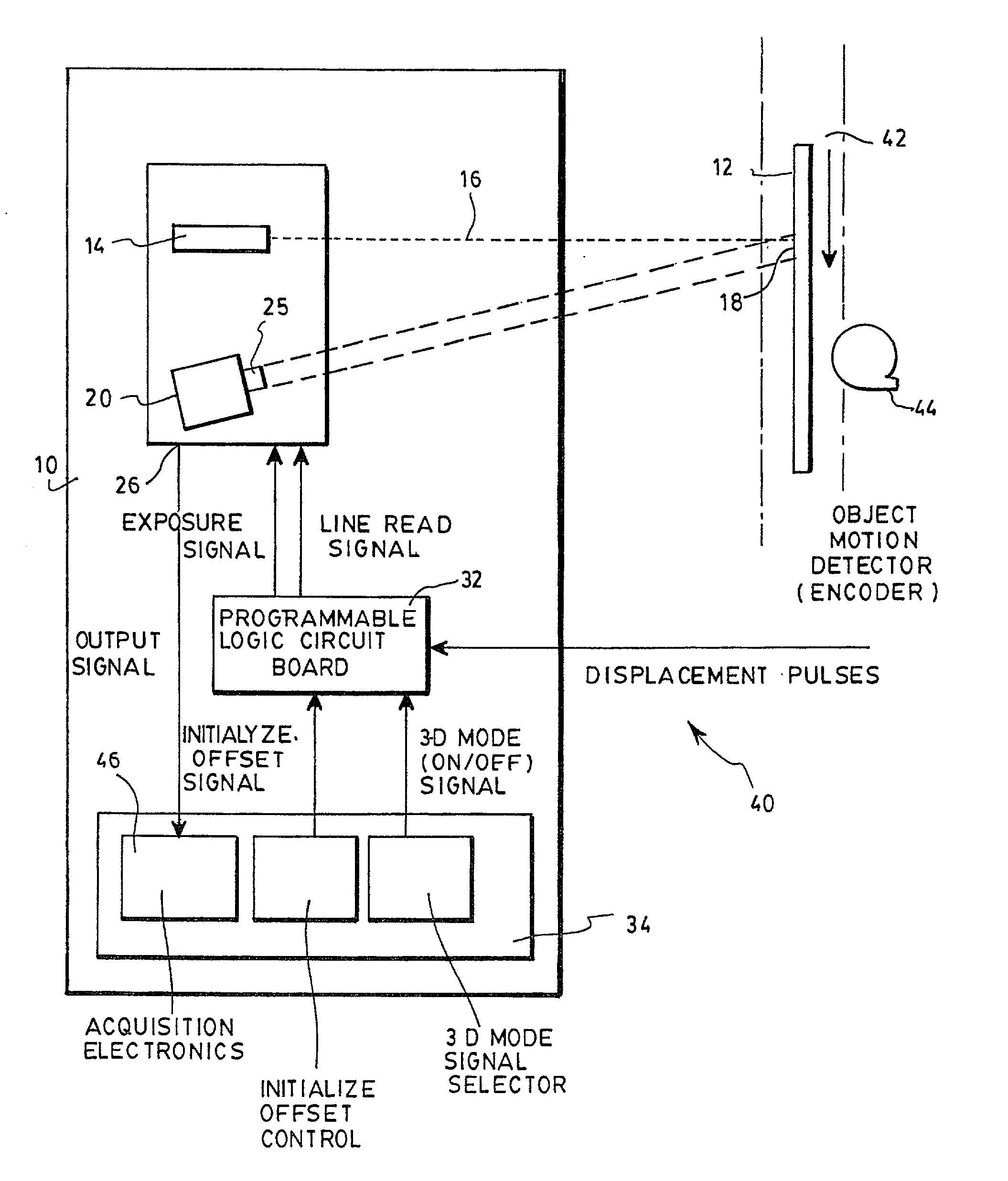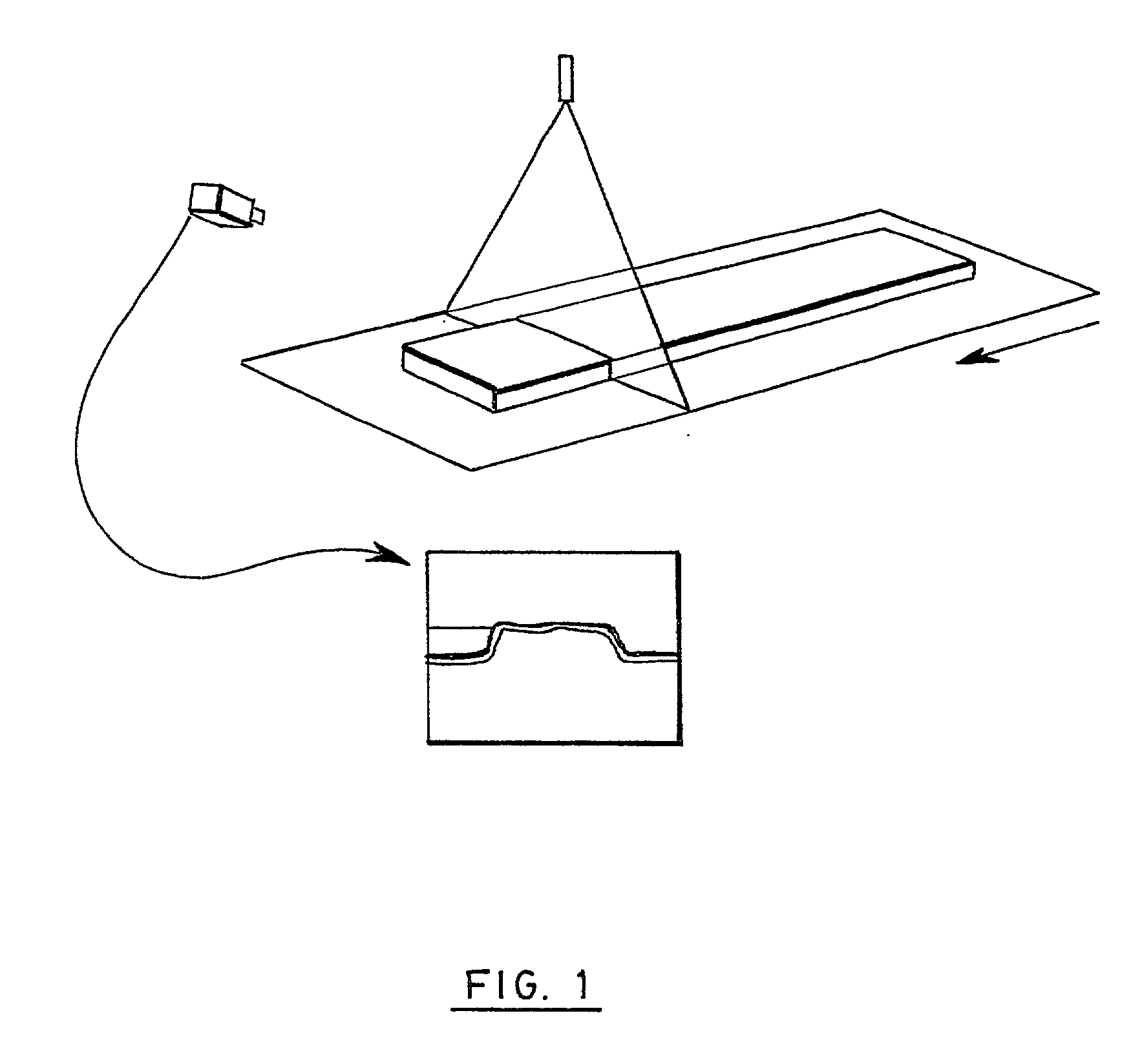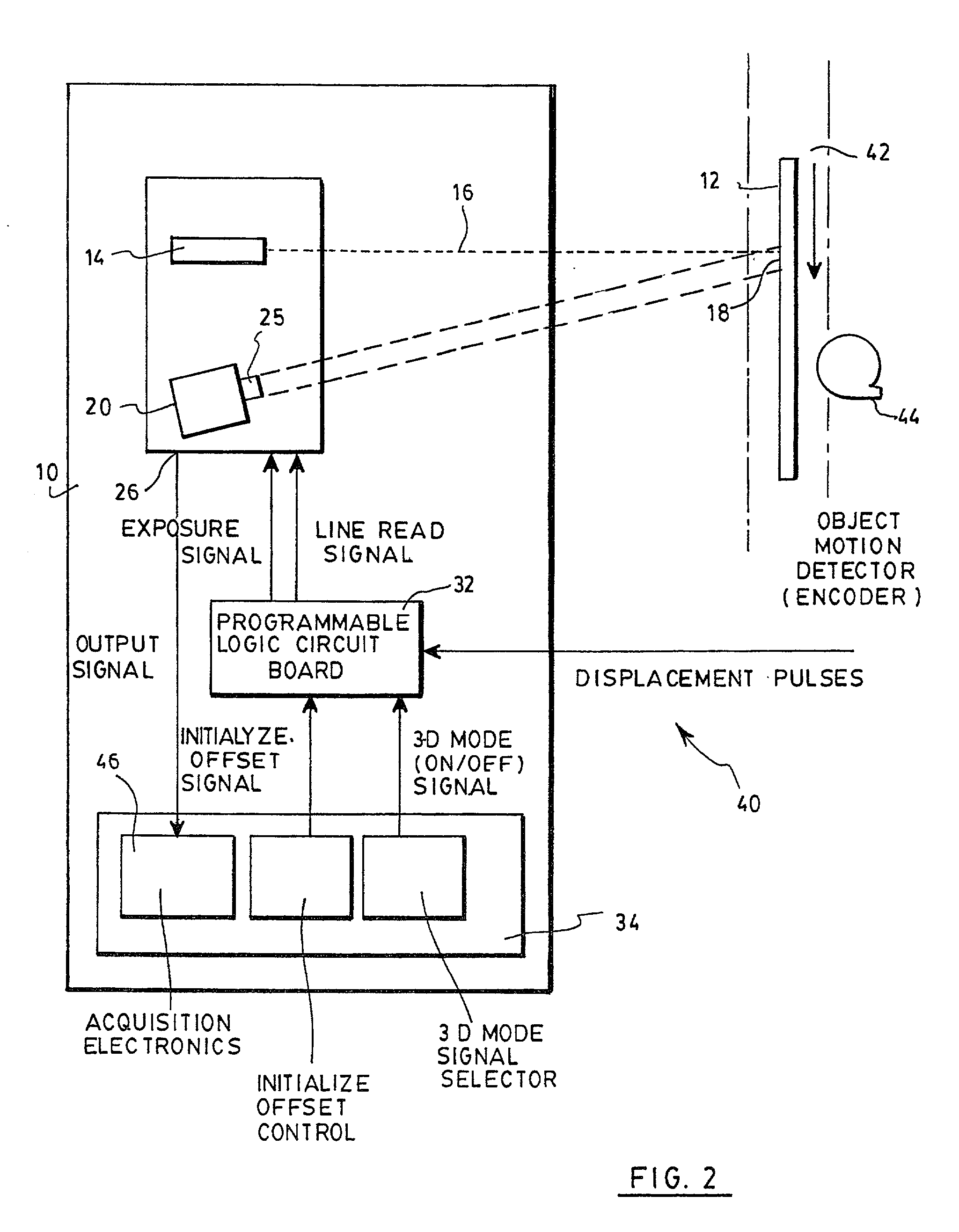Sensor and method for range measurements using a TDI device
- Summary
- Abstract
- Description
- Claims
- Application Information
AI Technical Summary
Benefits of technology
Problems solved by technology
Method used
Image
Examples
Embodiment Construction
[0039] With reference to FIG. 2, there is shown a preferred embodiment of a sensor 10 for measuring the range to a target object 12.
[0040] The sensor first includes a light source 14 generating a light beam 16. In the preferred embodiment, the light source 14 is a uniform intensity laser line projector, the light beam 16 therefore being line-shaped. For the purposes of the invention, the light beam should be structured, that is that it should define a pattern. The light beam 16 is projected towards an exposition area 18 on the target object 12, and reflected by this object. The shape of the reflected light beam will help determine the range of the surface of the object 16 along the pattern defined by the light beam 16.
[0041] A TDI device 20 is provided and positioned to detect the reflection of the light beam 16 on the target object 12 within the exposition area 18. A camera lens 25 is preferably provided to image the reflection of the light beam 16 on the appropriate optical compon...
PUM
 Login to View More
Login to View More Abstract
Description
Claims
Application Information
 Login to View More
Login to View More - R&D
- Intellectual Property
- Life Sciences
- Materials
- Tech Scout
- Unparalleled Data Quality
- Higher Quality Content
- 60% Fewer Hallucinations
Browse by: Latest US Patents, China's latest patents, Technical Efficacy Thesaurus, Application Domain, Technology Topic, Popular Technical Reports.
© 2025 PatSnap. All rights reserved.Legal|Privacy policy|Modern Slavery Act Transparency Statement|Sitemap|About US| Contact US: help@patsnap.com



